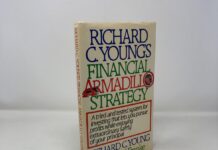Game Theory may shed some light on the startling call made by Seattle’s Pete Carroll in the stunning closing seconds of Seattle’s Super Bowl loss to the New England Patriots.
Justin Wolfers of the Peterson Institute for International Economics explains here.
Whenever I have taught economics students the idea of playing a mixed strategy, they respond incredulously, because it defies common sense to make the biggest decision of your football coaching life randomly. It may defy common sense, but it makes good strategic sense.
Perhaps you are like my students, and your advice is that maybe Carroll should follow a mixed strategy most of the time, but not in the dying seconds of the Super Bowl. But realize that if this were an optimal choice, Belichick would probably figure it out, and he would instruct his players to guard against the run. When most of the defenders focus only on stopping one running back, they usually succeed.
Or perhaps you believe that Lynch’s statistics show that he is so successful at bulldozing through opponents that he would succeed even against a defense set up only to stop the run. I disagree. A key reason that Lynch has been so successful is that his coach has been playing a mixed strategy all season. Lynch has accumulated impressive numbers in part because opposing defenses have had to be concerned about Russell Wilson’s passing. And so Lynch’s history of success when playing as part of a mixed strategy says nothing about how successful he would be if his opponents knew for sure his coach would call a running play.
Game theory points to the possibility that Carroll’s decisive call was actually the result of following the best possible strategy, and that this is a strategy that involves an element of randomness in play-calling. This leads to the intriguing possibility that if that fateful final play were to be run in a dozen parallel universes, with each coach continuing to play the same mixed strategy, the actual plays called would differ, as would their outcomes.
And so the same teams pursuing the same strategies under the same circumstances might have yielded a different Super Bowl champion.
If you’re willing to fight for Main Street America, click here to sign up for my free weekly email.





